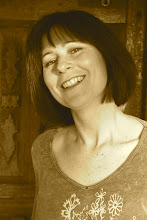Seasoned writers will tell you that you to send out your work to get published. After all, most editors don't operate by telekinesis.
But how do you know
if it's ready
who to send it to
how many editors to hit up at once???
Well, I don't have the magic answer, but I can tell you my strategy.
First you have to find a reader you trust...someone that reads in your genre, someone that get your work, someone who is discerning and honest. Try to pick a reader (or two) that haven't seen a gazillion drafts of your mss already.
Does your reader want more after seeing the first paragraph? the first chapter?
Are the first three chapters as good as you can make them?
Ok, then.
Next you'll want to research publishers. I used to spend hours poring through books that listed publishers without learning much. I think the best (and most fun) strategy is to read at least a dozen books in your genre (less than three years old). Also you can find interviews with editors online. You can read PWs Children's Bookshelf book reviews. It's slow work, but worth the effort.
I usually send to 3 editors at a time. One at a time feels too slow, but ten at a time means that I've burned too many bridges with one draft. What if I get a brilliant idea how to revise it?
Confession: I sent my first novel to almost 20 different editors over a five year period. I revised it about 4 times. Once in 2003 and once in 2005 an editor asked to see the entire mss. Neither event led to a sale, but each time it tied the mss up for one year.
And my point is?
Submitting is a pain. But you might learn something. No sale is no sale. Still, the interest told me I was getting closer.
True those brown envelopes are like a dagger in the heart...but they hold clues to your future as a writer.
